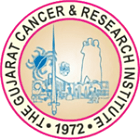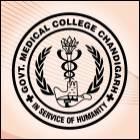- Home
- Courses
- Predictors
- Packages
- About
- Login
- Contact
- Near NRR Hospital, Thammenahalli Village, Bengaluru, Karnataka 560 090
- +91 8904151144
- cgmanagement00@gmail.com
Content Writer: Shubham S Nimje
Published on: Tue Jan 09 2024Updated on: Tue Jan 09 2024
Introduction: Bachelor of Physiotherapy (BPT) stands at the forefront of healthcare, focusing on physical rehabilitation, injury prevention, and holistic well-being. This comprehensive guide aims to shed light on the essence of BPT, encompassing educational insights, admission procedures, top colleges, career prospects, and more.
BPT stands for Bachelor of Physiotherapy, an undergraduate program in healthcare that emphasizes physical rehabilitation, therapeutic exercises, and manual therapies to enhance mobility and improve quality of life.
While both BPT and BDS are healthcare disciplines, BPT focuses on physical rehabilitation and improving mobility, whereas BDS deals with oral health, dental treatment, and surgeries.
Candidates seeking admission to BPT programs typically require a 10+2 qualification with Physics, Chemistry, Biology, and English as compulsory subjects. Specific eligibility criteria may vary across institutions.
Entrance exams like NEET (National Eligibility cum Entrance Test), CET (Common Entrance Test), and state-level medical entrance exams serve as entry points for BPT programs in India.
The BPT curriculum includes subjects such as Anatomy, Physiology, Biochemistry, Biomechanics, Kinesiology, Pathology, Pharmacology, and Exercise Therapy.
Practical training involves hands-on experience in physiotherapy techniques, therapeutic exercises, electrotherapy, manual therapy, and clinical placements in hospitals or rehabilitation centers.
Notable institutions offering BPT programs include AIIMS (Delhi), Manipal University (Karnataka), Nirma University (Gujarat), among others, known for their quality education and infrastructure.
BPT offers specializations in various fields such as Orthopedics, Neurology, Pediatrics, Cardiorespiratory, Sports Physiotherapy, and Geriatrics, allowing students to focus on specific areas of interest.
Post BPT, graduates can pursue Master of Physiotherapy (MPT) in specialized areas or opt for certifications, workshops, or courses in advanced physiotherapy techniques or research methodologies.
BPT graduates find employment in hospitals, clinics, sports facilities, rehabilitation centers, academic institutions, and corporate healthcare sectors.
Entry-level salaries for BPT graduates vary based on experience, location, and specialization, with the potential for growth in earnings over time and with added expertise.
BPT programs often include training in manual therapy techniques such as joint mobilization, soft tissue manipulation, myofascial release, and muscle energy techniques for pain relief and improved mobility.
Students learn about the use of electrotherapy modalities like ultrasound, TENS (Transcutaneous Electrical Nerve Stimulation), laser therapy, and electrical muscle stimulation to aid in pain management and tissue healing.
BPT offers specialized training in neurological rehabilitation, focusing on conditions like stroke, spinal cord injuries, Parkinson’s disease, and multiple sclerosis, aiming to restore function and improve quality of life.
Students learn orthopedic assessment techniques and rehabilitation protocols for conditions such as fractures, joint replacements, ligament injuries, and musculoskeletal disorders.
BPT programs cover sports injury assessment, rehabilitation strategies, and performance enhancement techniques to assist athletes in recovering from injuries and preventing future ones.
Physiotherapists trained in sports physiotherapy help athletes optimize performance through tailored exercise programs, injury prevention strategies, and rehabilitation plans.
BPT includes training in geriatric physiotherapy, focusing on improving mobility, balance, and strength in the elderly population, along with fall prevention strategies.
Physiotherapists specializing in geriatrics address chronic pain issues commonly associated with aging, providing pain relief and improving overall functional abilities.
BPT programs emphasize research methodologies, enabling students to critically evaluate scientific literature, conduct research studies, and contribute to evidence-based practice in physiotherapy.
Physiotherapists integrate research findings and evidence-based practice into their clinical decision-making, ensuring the most effective and up-to-date treatment approaches for their patients.
BPT graduates can establish their private clinics, offering specialized physiotherapy services, rehabilitation programs, ergonomic assessments, and wellness consultations.
Physiotherapists collaborate with organizations to design and implement workplace wellness programs, ergonomic assessments, and injury prevention strategies for employees.
With technological advancements, physiotherapists use tele-rehabilitation platforms to provide remote consultations, exercise guidance, and monitoring for patients in distant locations.
Physiotherapists utilize wearable devices and technology for movement tracking, performance assessment, and remote monitoring of patients’ progress and adherence to treatment plans.
BPT graduates have opportunities to collaborate with international healthcare organizations, participate in exchange programs, and contribute to global health initiatives.
Physiotherapists may work in diverse cultural settings, adapting rehabilitation techniques to meet the needs and cultural beliefs of patients in different regions worldwide.
A: Yes, BPT graduates are qualified to practice independently as physiotherapists after registration with the respective state physiotherapy councils.
A: BPT graduates can secure employment in government hospitals, health departments, sports academies, and public healthcare initiatives.
A: BPT graduates can work as physiotherapists, rehabilitation specialists, consultants, educators, or pursue higher studies and research in specialized areas of physiotherapy.





Copyright © 2023 Career Guidance Management
Design and Developed by CGM